Germany Reimposes Virus Lockdowns, Djokovic Tests Positive
Germany on Tuesday reimposed coronavirus lockdowns on more than 600,000 people and tennis world number one Novak Djokovic tested positive for the illness -- two major setbacks in global efforts to restore a sense of normality to everyday life.
The moves highlighted how quickly the virus can resurface and spread, and how much more nations will need to do to reassure people that large gatherings are safe, after several other players tested positive following a tournament hosted by Djokovic.
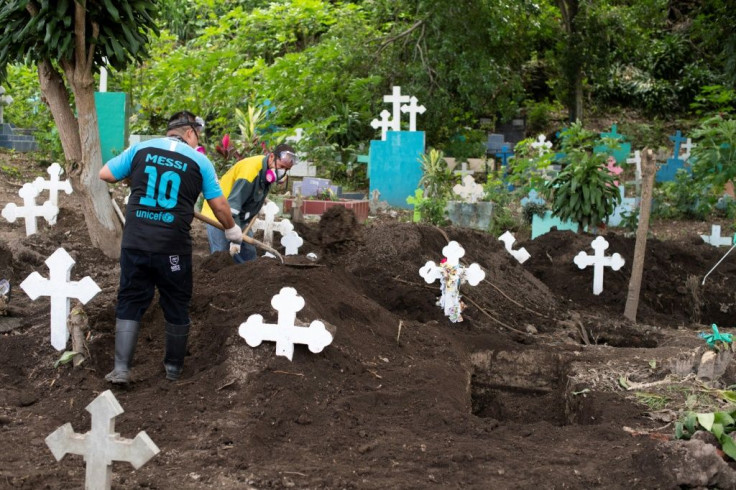
To that end, Saudi Arabia announced the annual hajj pilgrimage will be dramatically scaled back this year, to only about 1,000 Muslim faithful who are already in the kingdom -- a far cry from last year's 2.5 million.
The news was not all bad: England moved to reopen pubs, restaurants, hotels and hairdressers from July 4.
But a trio of US health officials led by Anthony Fauci, the nation's top infectious diseases expert, warned lawmakers that the global pandemic presented "historic" challenges.
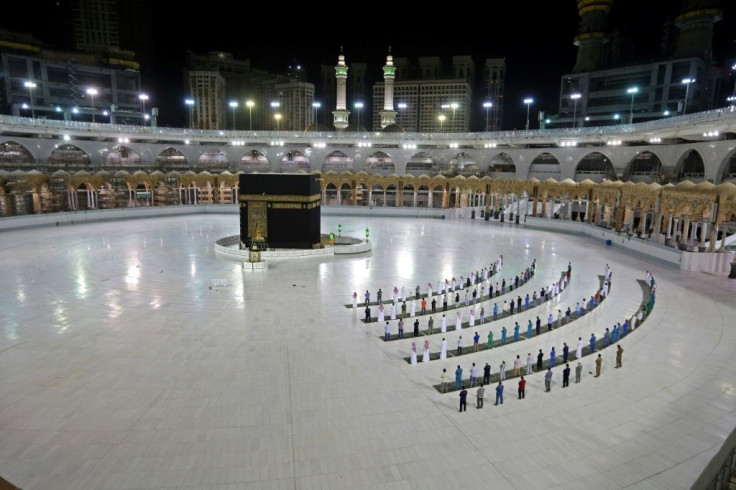
"COVID-19 activity will likely continue for some time," the experts said.
So far, more than 9.1 million cases have been detected worldwide, and more than 470,000 people have succumbed to the virus, according to an AFP tally from official sources.
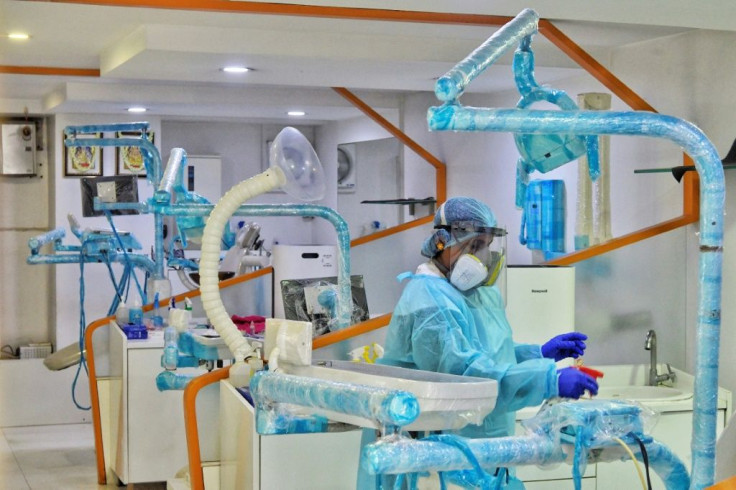
While the United States and Brazil are still battling to curb an uptick in virus cases, Europe has been steadily easing lockdowns and travel restrictions as death rates and infections have stabilised.
Germany was the first major EU nation to begin easing such measures about seven weeks ago, but two districts in the western part of the country were forced to apply the brakes once again.
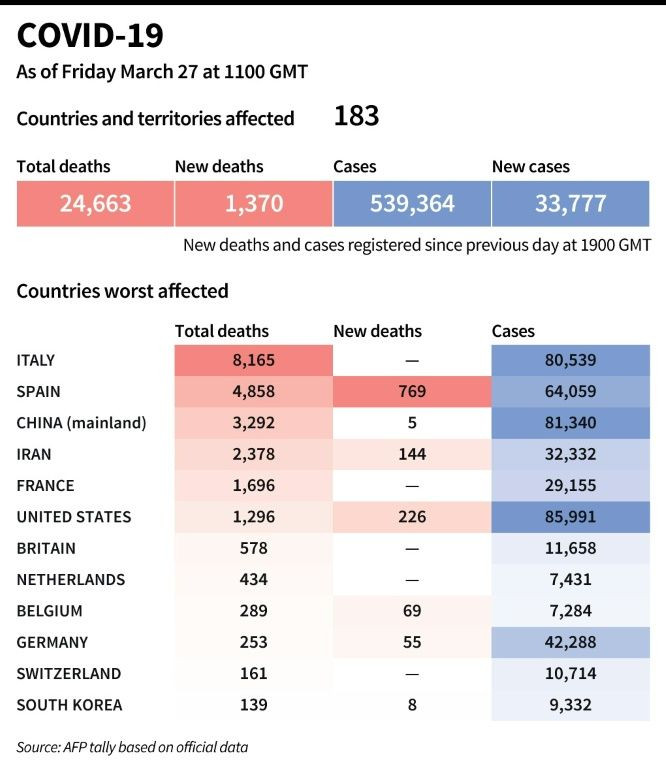
An outbreak at a slaughterhouse that has infected more than 1,500 workers prompted authorities in Guetersloh and neighbouring Warendorf to impose fresh restrictions on nearly 640,000 people.
"I had actually expected this much earlier," said Guetersloh resident Ullrich Wegner.
Portugal also imposed new restrictions in and around its capital Lisbon on Tuesday.
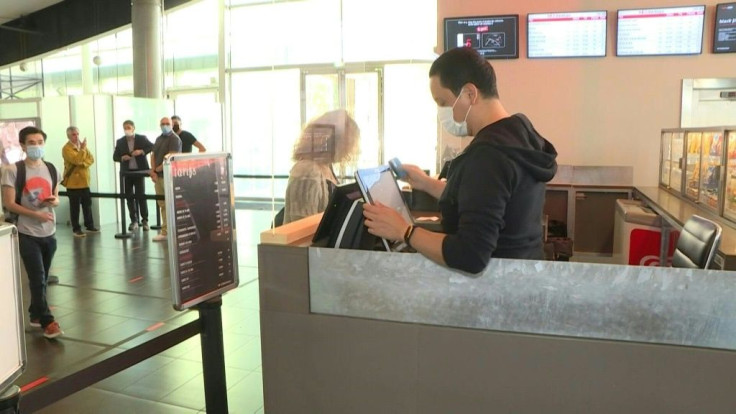
And the future of sporting events suffered a major blow when Djokovic, who had organised a series of exhibition events in the Balkans at which social distancing was minimal, tested positive for the virus.
Tennis was hoping to follow team sports like football back into arenas and stadiums, but the positive tests of Djokovic and three others have dampened its prospects.
"I am so deeply sorry our tournament has caused harm," the 17-time Grand Slam champion wrote on Twitter, adding, "It was too soon."
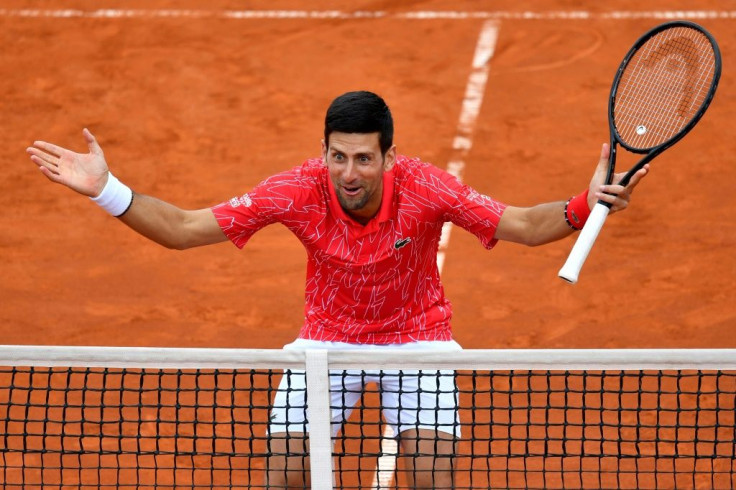
Saudi Arabia looked to head off any mass outbreak among pilgrims by organising a significantly smaller hajj -- a must for able-bodied Muslims at least once in their lifetime.

The kingdom is grappling with a major spike in infections, which have now risen to more than 164,000 cases -- the highest in the Gulf -- with nearly 1,350 deaths.
"I've been preparing for years. But what can I do? This is Allah's will -- it's destiny," said Kamariah Yahya, 68, from Indonesia.
Shahid Rafique, chairman of a Pakistani hajj tour operators' group, said it was "a moment of sorrow for all the Muslims."
Scientists are still grappling with the basics of the virus and how it spreads, but there were glimmers of hope Tuesday: South Africa announced it was launching a trial of a potential vaccine being developed in Britain.
The vaccine, developed by the Oxford Jenner Institute, is already being evaluated in Britain, and another pilot scheme is due to take place in Brazil.
"As we enter winter in South Africa and pressure increases on public hospitals, now more than ever we need a vaccine to prevent infection," said University of Witwatersrand vaccinology professor Shabir Madhi.
In the absence of a vaccine, the WHO has called for a rapid increase in production of the steroid dexamethasone, which has been shown to have life-saving potential for treating the most severe cases.
The economic fallout from the virus remains grim, with a tranche of new data from the World Trade Organization (WTO), which predicted that global trade would drop by about 18.5 percent in the second quarter.
WTO director-general Roberto Azevedo said the slide would be the steepest on record, but that it could have been much worse.
The WTO nevertheless cautioned that the outlook for the global economy over the next two years remained "highly uncertain."
Auto sales in Europe this year will also tumble by a record 25 percent, the pandemic having left manufacturers facing a "major economic crisis," the European Automobile Manufacturers' Association (ACEA) said.
In the United States, President Donald Trump -- who has faced criticism over his handling of the crisis -- doubled down on weekend comments that he wanted to slow coronavirus testing.
"I don't kid," he told reporters, while also praising the US testing scheme as the best in the world.
Fauci raised the alarm over rising case trends, telling lawmakers that several states were experiencing "a disturbing surge of infections."
"We're going to be doing more testing, not less," he said.
© Copyright AFP 2024. All rights reserved.





















